BMW X1 vs VW Passat - Differences and prices compared
Costs and Efficiency:
Looking at overall running costs, both models reveal some interesting differences in everyday economy.
VW Passat has a minimal advantage in terms of price – it starts at 35700 £, while the BMW X1 costs 38200 £. That’s a price difference of around 2494 £.
Fuel consumption also shows a difference: VW Passat manages with 1.20 L and is therefore clearly more efficient than the BMW X1 with 2.50 L. The difference is about 1.30 L per 100 km.
As for range, the VW Passat performs distinct better – achieving up to 135 km, about 54 km more than the BMW X1.
Engine and Performance:
Power, torque and acceleration are the classic benchmarks for car enthusiasts – and here, some clear differences start to show.
When it comes to engine power, the BMW X1 has a slightly edge – offering 326 HP compared to 272 HP. That’s roughly 54 HP more horsepower.
In acceleration from 0 to 100 km/h, the BMW X1 is slight quicker – completing the sprint in 5.40 s, while the VW Passat takes 5.80 s. That’s about 0.40 s faster.
In terms of top speed, the performs better – reaching , while the tops out at . The difference is around .
There’s also a difference in torque: BMW X1 pulls slightly stronger with 477 Nm compared to 400 Nm. That’s about 77 Nm difference.
Space and Everyday Use:
Beyond pure performance, interior space and usability matter most in daily life. This is where you see which car is more practical and versatile.
Seats: offers more seating capacity – vs .
In curb weight, VW Passat is minimal lighter – 1573 kg compared to 1575 kg. The difference is around 2 kg.
In terms of boot space, the VW Passat offers distinct more room – 690 L compared to 540 L. That’s a difference of about 150 L.
In maximum load capacity, the VW Passat performs somewhat better – up to 1920 L, which is about 320 L more than the BMW X1.
When it comes to payload, VW Passat slightly takes the win – 577 kg compared to 500 kg. That’s a difference of about 77 kg.
Who wins the race?
The VW Passat proves to be is largely superior and therefore becomes our DriveDuel Champion!
VW Passat is the better all-rounder in this comparison.
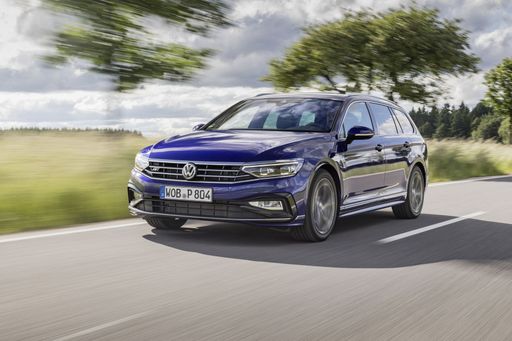 @ Volkswagen AG / VW Media
@ Volkswagen AG / VW Media
VW Passat
Costs and Consumption
View detailed analysis
Engine and Performance
View detailed analysis
Dimensions and Body
View detailed analysis
BMW X1
The BMW X1 brings a premium feel to compact crossover life, wrapping practical space and agile handling into a tidy, upscale package. It’s ideal for buyers who want BMW driving dynamics without the bulk, offering everyday comfort and a few clever tricks to keep the commute interesting.
details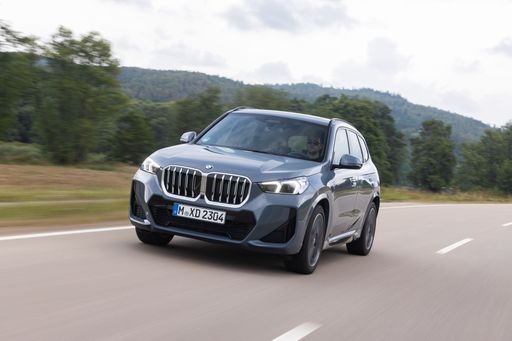 @ BMW Group Press
@ BMW Group Press
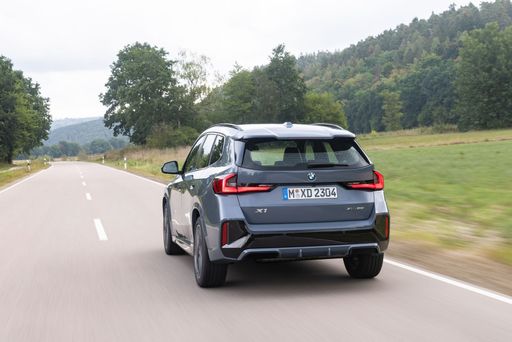 @ BMW Group Press
@ BMW Group Press
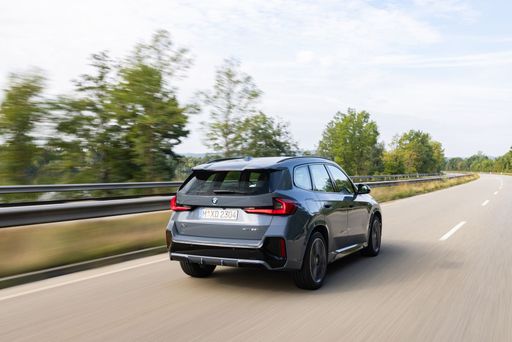 @ BMW Group Press
@ BMW Group Press
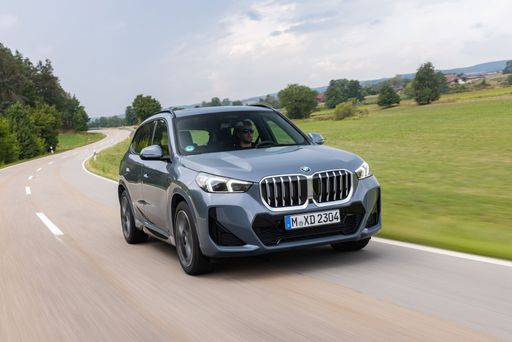 @ BMW Group Press
@ BMW Group Press
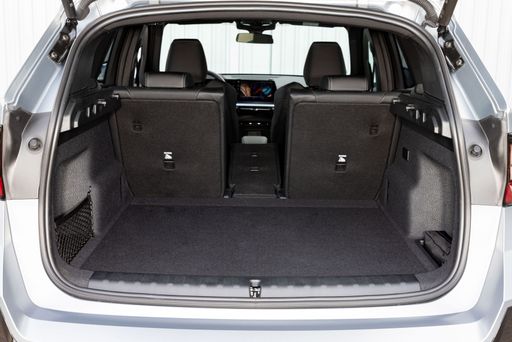 @ BMW Group Press
@ BMW Group Press
VW Passat
The VW Passat is the grown-up family car that gets the basics absolutely right — roomy, comfortable and built to handle weekday commutes and weekend getaways without fuss. It won't set your pulse racing, but its calm composure and sensible packaging make it boring in the best possible way: a dependable, no‑drama choice for buyers who value practicality over flash.
details @ Volkswagen AG / VW Media
@ Volkswagen AG / VW Media
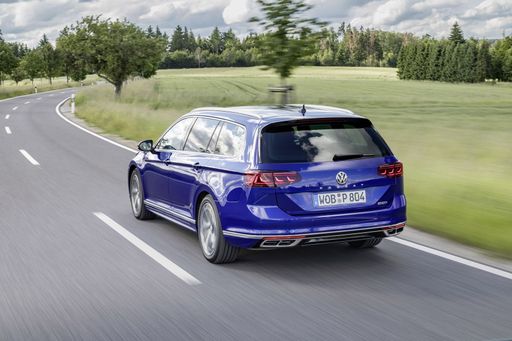 @ Volkswagen AG / VW Media
@ Volkswagen AG / VW Media
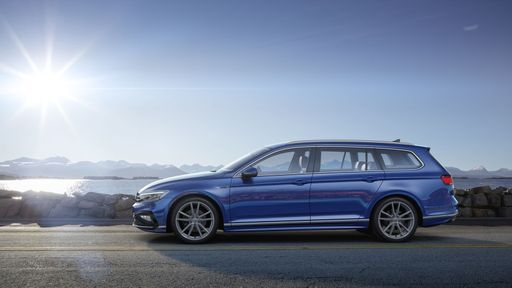 @ Volkswagen AG / VW Media
@ Volkswagen AG / VW Media
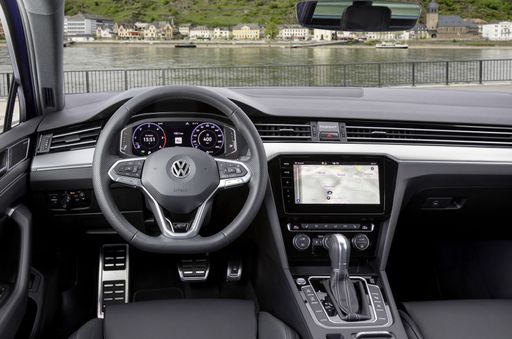 @ Volkswagen AG / VW Media
@ Volkswagen AG / VW Media
 @ BMW Group Press
@ BMW Group Press
|
 @ Volkswagen AG / VW Media
@ Volkswagen AG / VW Media
|
|
|
|
Costs and Consumption |
|
|---|---|
|
Price
38200 - 55500 £
|
Price
35700 - 58500 £
|
|
Consumption L/100km
2.5 - 7.7 L
|
Consumption L/100km
1.2 - 8 L
|
|
Consumption kWh/100km
-
|
Consumption kWh/100km
-
|
|
Electric Range
81 km
|
Electric Range
124 - 135 km
|
|
Battery Capacity
14.20 kWh
|
Battery Capacity
19.70 kWh
|
|
co2
57 - 175 g/km
|
co2
28 - 181 g/km
|
|
Fuel tank capacity
47 - 54 L
|
Fuel tank capacity
45 - 66 L
|
Dimensions and Body |
|
|---|---|
|
Body Type
SUV
|
Body Type
Estate
|
|
Seats
5
|
Seats
5
|
|
Doors
5
|
Doors
5
|
|
Curb weight
1575 - 1935 kg
|
Curb weight
1573 - 1858 kg
|
|
Trunk capacity
490 - 540 L
|
Trunk capacity
510 - 690 L
|
|
Length
4500 - 4505 mm
|
Length
4917 mm
|
|
Width
1845 mm
|
Width
1849 mm
|
|
Height
1622 - 1642 mm
|
Height
1521 mm
|
|
Max trunk capacity
1495 - 1600 L
|
Max trunk capacity
1770 - 1920 L
|
|
Payload
490 - 500 kg
|
Payload
501 - 577 kg
|
Engine and Performance |
|
|---|---|
|
Engine Type
Diesel MHEV, Petrol MHEV, Petrol, Diesel, Plugin Hybrid
|
Engine Type
Petrol, Petrol MHEV, Diesel, Plugin Hybrid
|
|
Transmission
Automatic
|
Transmission
Automatic
|
|
Transmission Detail
Dual-Clutch Automatic
|
Transmission Detail
Dual-Clutch Automatic
|
|
Drive Type
Front-Wheel Drive, All-Wheel Drive
|
Drive Type
All-Wheel Drive, Front-Wheel Drive
|
|
Power HP
136 - 326 HP
|
Power HP
122 - 272 HP
|
|
Acceleration 0-100km/h
5.4 - 9.2 s
|
Acceleration 0-100km/h
5.8 - 10.7 s
|
|
Max Speed
190 - 250 km/h
|
Max Speed
212 - 250 km/h
|
|
Torque
230 - 477 Nm
|
Torque
250 - 400 Nm
|
|
Number of Cylinders
3 - 4
|
Number of Cylinders
4
|
|
Power kW
100 - 240 kW
|
Power kW
90 - 200 kW
|
|
Engine capacity
1499 - 1998 cm3
|
Engine capacity
1498 - 1984 cm3
|
General |
|
|---|---|
|
Model Year
2024 - 2025
|
Model Year
2024 - 2025
|
|
CO2 Efficiency Class
D, E, F, B
|
CO2 Efficiency Class
G, D, E, B
|
|
Brand
BMW
|
Brand
VW
|
Is the BMW X1 offered with different drivetrains?
The BMW X1 is offered with Front-Wheel Drive or All-Wheel Drive.
The prices and data displayed are estimates based on German list prices and may vary by country. This information is not legally binding.
